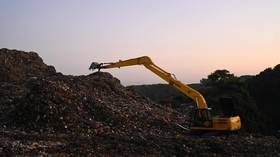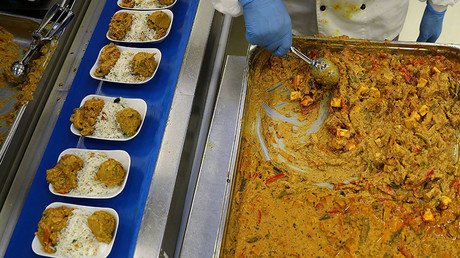No lie too big: Keiser Report compares Big Oil’s plastic pollution to US Fed’s ‘toxic waste dumps’ of fiat money

In a new episode of the Keiser Report, Max Keiser and Stacy Herbert discuss the fact that most plastic is not actually recycled. It is just dumped in the landfill with all our other trash.
“It turns out that this was a decades-long ad campaign, a propaganda campaign,” says Stacy. She points out that less than ten percent of all plastics are ever recycled, because they can’t be recycled.
Max compares that to the US central bank and its pollutants, the fiat money. They keep telling people they are going to recycle this money into the economy, Max says, but if you look at the chart that tracks the money velocity, you’ll see it’s impossible to recycle the Fed pollution.
“It just sticks on toxic waste dumps of Citibank, JP Morgan, Wells Fargo and other banks around the world. It’s just a stinking toxic dump of risk that’s emanating more risk,” he adds, noting that the corporate banking credo is “no lie is too big.”
For more stories on economy & finance visit RT's business section














